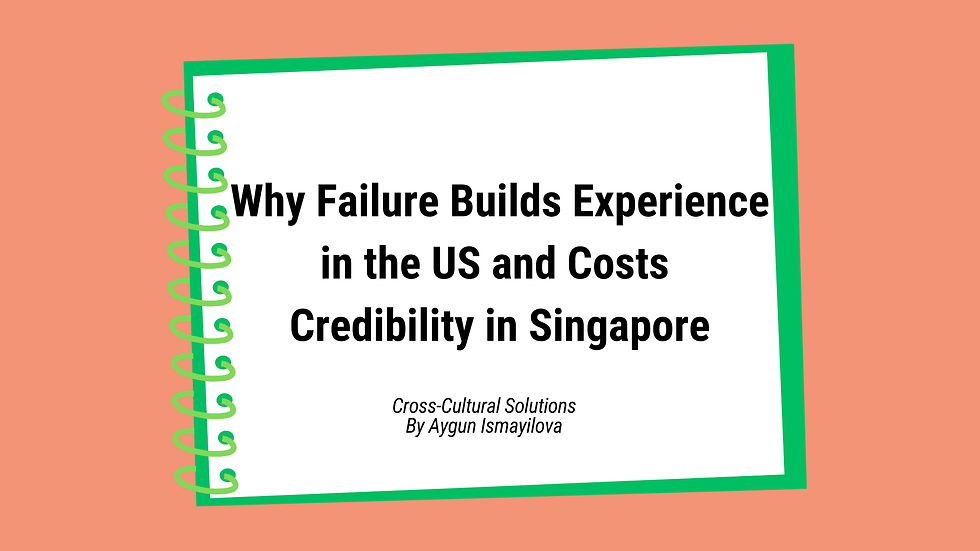How to Make Sense of Singapore
- Aygun Ismayilova
- Jun 12, 2025
- 2 min read

When European companies set their sights on Asia, Singapore often rises to the top of the list - and for good reason. This small but remarkably influential city-state blends strategic location, economic stability, and rich cultural diversity into one of the most compelling business environments in the world.
The EU-Singapore Free Trade Agreement, in effect since 2019, has only strengthened this appeal by eliminating tariffs and simplifying trade processes for European firms. But while policy plays its part, what truly sets Singapore apart is its quality of life, openness to ideas, and ability to bring together people, cultures, and commerce.
A Society Built on Diversity
Singapore’s people are central to its cultural identity. The population is roughly 74% Chinese, 13% Malay, 9% Indian, and 4% from other backgrounds, including a significant number of expatriates from around the world. This mix creates a naturally cosmopolitan atmosphere where multiple perspectives coexist - and often collaborate.
Each cultural group contributes something distinct to how business and daily life function. The Chinese community brings a structured, long-term approach; Malay influences add a consensus-driven, relaxed rhythm; Indian traditions offer adaptability and entrepreneurial energy. Together with a strong expat presence, these cultures form a vibrant, globally aware society that embraces difference as strength.
English is the main language of business, but you’ll also hear Mandarin, Malay, and Tamil in homes, streets, and public announcements. This multilingualism adds to Singapore’s strategic edge for companies eyeing broader expansion in Asia.
Why Europeans Feel at Home
Despite being in the heart of Southeast Asia, Singapore often feels surprisingly familiar to Europeans.
Business culture here reflects a blend of global norms and local nuance. Meetings are punctual and focused, agendas are clear, and decisions are generally outcome-oriented. There’s a respectful, often collaborative approach to hierarchy - something that feels natural to professionals used to Northern or Nordic workplace models. At the same time, relationship-building and flexibility in communication echo Southern European traditions.
The workforce is another strong point. Highly educated, globally experienced, and fluent in English, Singaporean professionals are comfortable navigating cross-cultural environments. For European firms, this means less friction when setting up, managing teams, or scaling across the region.
Work-life integration also resonates with European values. The typical workweek is 40–45 hours, and while benefits vary, policies around parental leave, vacation, and flexible arrangements are competitive within Asia. Outside of work, the city offers a lifestyle that makes long-term relocation not only manageable but genuinely appealing - expat communities, international schools, and accessible nature all play a role.
A Place That Makes Sense
Singapore is much more than a convenient entry point into Asia. It’s a forward-thinking, culturally fluent city that offers global businesses the best of both worlds: the opportunity and dynamism of the East, with the structure and familiarity of the West.
For European companies and professionals looking to expand not just strategically, but meaningfully - Singapore makes sense.

Cross-Cultural Communications Expert
Aygun Ismayilova
With over a decade of experience in international communications management across Europe, the U.S., and Asia, I bring a unique blend of journalistic insight and strategic expertise. Specializing in market research and cross-cultural communication strategies, I empower professionals and companies to bridge cultural gaps and grow with confidence in diverse business environments.



Comments